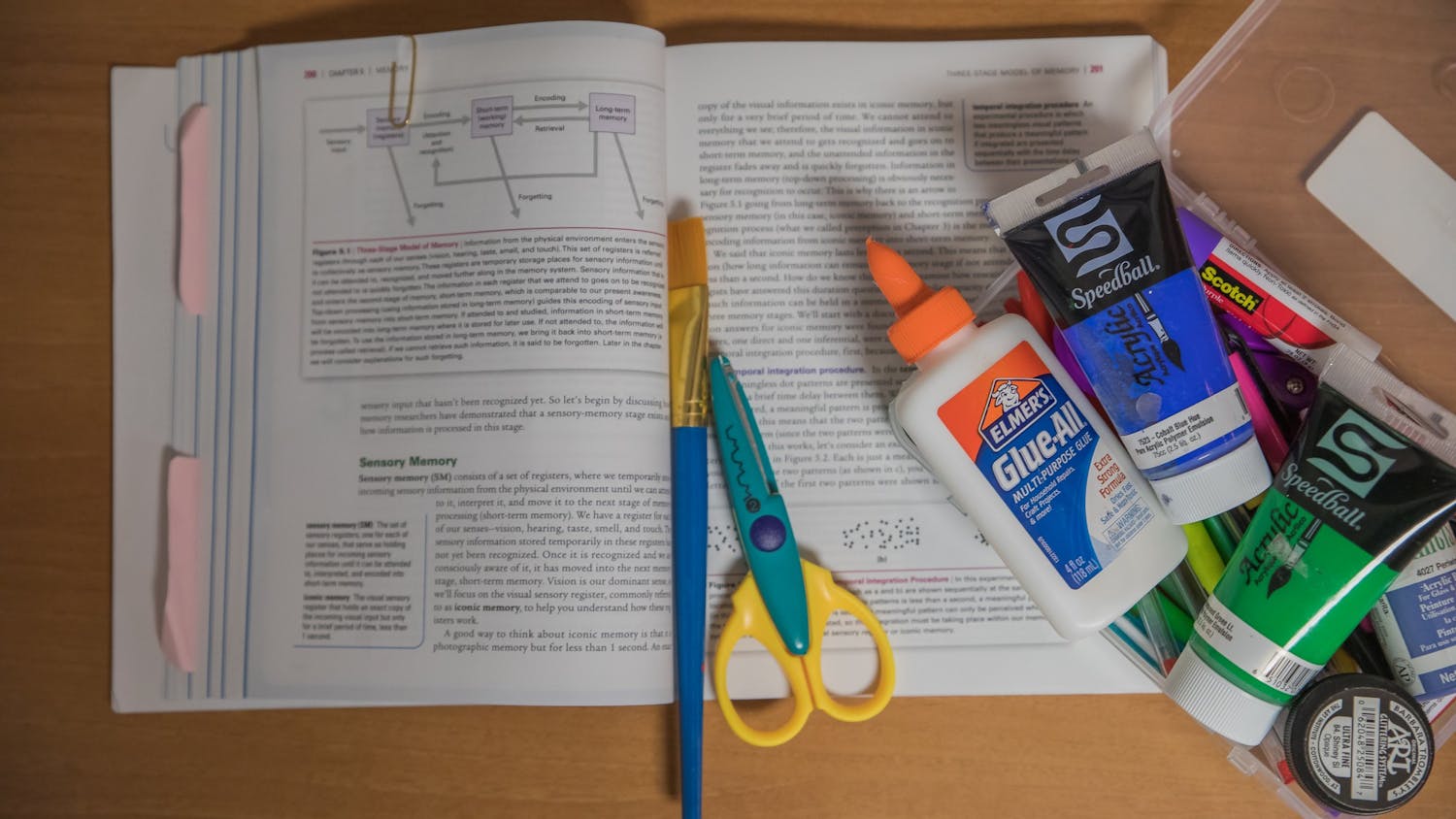Most students don’t think twice about their ability to place an order with a barista, ask a grocer where they can find a certain item or listen to their professor lecture — at UW-Madison, it’s all in English.
It’s easy to take this language fluency for granted, but for students studying abroad, daily activities both in and out of the classroom provide constant opportunities to expand their understanding of a new language.
While some of the best learning opportunities may be those that occur outside the classroom and immersed in a new culture, students sometimes assume simply by being in a foreign country their language skills will improve. But an individual’s dedication to learning is key to linguistic success.
Motivation matters
Students’ motivation relates to the “Study Abroad Myth” — students learning a foreign language at UW-Madison will have to study and work hard to get a good grade, while a student studying abroad will learn the language effortlessly, explained Heather Allen, who researches language-learning motivation.
“The myth is that as soon as you get in that airplane and you get [abroad], you’re like a sponge and will naturally and organically absorb language from the environment around you,” Allen said.
Emma McKeel, a UW-Madison student currently studying abroad in Germany, recalled her experience with this phenomenon.
“I thought I was going to come in and everything was going to be in German, and it was going to be so easy for me,” said McKeel. “It’s been a lot more work on my side of forcing myself to sit down and study and practice.”
Since students don’t simply soak in language, it’s individuals’ goals and experiences that define their language acquisition, Allen explained.
Variations in experience — like staying with a host family or living with English-speaking peers that might allow students to remain in their comfort zone — can be influential in language learning, according to a study by Allen. That, and the digital umbilical cord, which connects students to English speaking friends and family back home.
“Experiences are variable. They depend on why you have chosen to study abroad,” she said. “If you don’t cut the digital umbilical cord , you’re probably not going to see those amazing linguistic gains,” she said.
Jessa Boche, a senior study abroad advisor at UW-Madison, added that a student’s level of engagement also matters.
“Even if they are in a host family situation, if they are not making the effort to make those connections, they’re not going to get the same amount of impact back,” Boche said.
Because of this, Boche helps students think through their academic and language goals before they go abroad.
Local language learning takes place out of the classroom
Anastasiya Kelnhofer, a UW student now studying in Germany, decided to spend a full year abroad to give herself the best chance at improving her German, but admitted the adjustment was harder than she expected.
“The first time you go grocery shopping, you’re like, ‘I don’t recognize any of these brands, and I don’t necessarily know what this says.’ You go to the register and have to remember, ‘What are they going to ask me because I’m going to freak out and not understand,’” she shared.
While culture shock and lack of immediate progress can be disheartening, students strongly motivated to learn a foreign language will transform that motivation into specific actions outside the classroom and make progress in learning, Allen said.
For example, a student who wants to improve their French might volunteer at a local church or join a local yoga studio instead of hanging out with their English-speaking friends.
Kelhofer engaged in this way by signing up for a flamenco dance class. At first, she didn’t say much, but soon found the confidence to talk with her classmates.
“I was always afraid that teachers would say something to me directly and I would not be able to respond. But I just started having conversations with people in my class,” Kelhofer stated.
Michael Warren, a UW-Madison senior who studied in both Ecuador and Hong Kong, also emphasized his experiences immersed in a foreign community versus time in the classroom as being beneficial to his language skills.
Over 300,000 students went abroad during the 2017-’18 academic year, according to data from the International Institute of Education, including over 2,000 UW-Madison students.
But because English is standard for international education and because not all students go abroad to learn another language, many classes in foreign countries are still taught in English.
Around 200 of UW-Madison’s 260 study abroad programs are offered in English, according to the university’s study abroad marketing specialist.
All of Warren’s non-Cantonese courses in Hong Kong were taught in English and there was an English translator present in Ecuador where the lectures were often given in Spanish.
Instead, Warren — who said he wanted to take advantage of the opportunity abroad to learn more world languages — improved his language skills by speaking to locals.
“My speaking came along very quickly. I was able to have full dinner conversations about family, religion and sports and flow between the topics,” he said. “That felt really good.”
Even Henry West, who didn’t arrive in Kenya with the expectation of learning another language, found himself picking it up naturally through his exposure to native speakers. While most of the people West interacted with in his program spoke English, the locals were eager to teach him words in Swahili.
“I stayed up until one [a.m.] just chatting with these guys and they’re showing me Kenyan songs on their computer and trying to teach me the words to them,” he said.
In comparison, three of the four classes Kelnhofer is taking are taught in German, but she said that sometimes — especially at first — she would lean on the other American students in her classes.
“It’s a little less pressure,” Kelhofer said. “You feel more comfortable speaking German because you know the person next to you isn’t a native speaker either.”
One of the ways Kelhofer got over her fear of misspeaking around native speakers was exposing herself to conversations in German and joining in when she could — and she’s found that many native speakers understand she’s learning and are encouraging rather than critical.
It’s this type of local immersion that makes the biggest difference, Allen emphasized.
“[It’s] not only getting on the plane and going to classes, but doing all the things out in the environment, whether it’s with host family members or other organizations or leisure activities that you can get involved in,” Allen added.
Although West didn’t need to learn Swahili, he said the locals were so friendly and encouraging he began to enjoy speaking to them in their language, even if it was just a few simple phrases.
He recalled a time while he and his group had stopped to take pictures at the equator and a Kenyan man came up and started teaching him Swahili words.
“Without me asking, he was just telling me ‘hair’ and all the clothes I was wearing and all the different body parts,” West said. “Even in those five minutes he was trying to help me learn something.”
Language exchange
All sources agreed that speaking to locals in their own language helped bridge a connection into a new culture — but getting locals to continue speaking in their native tongue could sometimes prove to be difficult once they realized there was a chance to practice English.
“I’ll go to the store or I’ll go buy a coffee and if you stumble on someone and they realized you’re American or you speak English, then they want to speak English with you,” said McKeel.
Kelhofer ran into similar issues with her German peers, so instead she practices German with her roommates.
“We’ll switch back and forth between languages — then we’re both getting better,” she said.
Warren estimated that 80 percent of the students in his dorm in Hong Kong were local.
“When I [would] go into the lounge everyone was speaking Cantonese with each other,” he said. “When they switched to English to talk to me it took some of the fun out of it.”
McKeel tried to solve the dilemma by signing up for a tandem language partner. She said this not only gave her a chance to practice her German and meet a new friend, but helped her feel more accepted into German culture.
One benefit of going abroad to learn a language isn’t just adding fluency to your resume, but also the ability to communicate and navigate situations with people who are not like you, Allen said.
Studying the language helped to better understand the local culture, make friends and gain the respect of his peers, Warren added.
“I’m able to form relationships better when I’m speaking English,” Warren said. “However, I love the challenge of trying to learn a world language, and it’s more fulfilling when you’re able to convey something to someone and make them laugh in their own language.”





